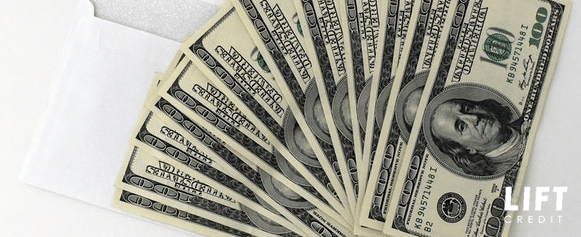Most people are familiar with certain types of loans, like auto loans or student loans. Another type of loan that’s becoming more popular is what’s called a personal loan.
A personal loan is basically just a short-term loan that you can use for “personal” reasons, i.e. almost anything you need or want.
People often use these loans for emergencies and they can’t plan for. They’re good for unexpected emergencies, consolidating multiple loans, making home improvements, paying medical bills, or financing a large, one-time expense.
Personal loans are available from banks, credit unions, online lenders, and peer-to-peer lending platforms.
Unlike a credit card, a personal loan is for a specific amount of money. borrowers generally repay the loan in fixed monthly payments (called installments) for a predetermined number of months. The repayment term varies. Depending on the loan type, the repayment term can range from a few days to multiple years.
When you make the last payment and the loan is paid in full, the lender closes the account. After that, you’ll have to apply for another loan if you want to borrow more money.
Types of Personal Loans
There are two basic types of personal loans: secured and unsecured.
For a secured loan, the borrower puts up some personal property as collateral, such as a certificate of deposit, or a tangible asset like a car. If you default on the loan, the lender usually has the right to seize that collateral as payment for the loan.
Unsecured personal loans, on the other hand, are not backed by collateral. Instead, lenders look at your financial history to decide whether you qualify for the loan. Because they’re not secured, unsecured personal loans often come with a higher interest rate than you’ll get with a secured loan.
Most personal loans are unsecured.
How It Works
There are a few things that go into deciding the interest rate on an unsecured personal loan. A lender may take into account your financial background, credit history, income, employment, debt, and whether you have a cosigner.
If you have a poor credit score and a tough financial background, don’t worry. Some lenders cater specifically to you. They don’t check your FICO credit score, and their interest rates are much lower than typical payday loans.
The loan itself can also affect the interest rate. For example, the size of the loan or how long you want to take the loan out for often affects the APR (Annual Percentage Rate) on the loan.
Keep in mind that a longer loan term makes monthly payments lower, but it will likely cost you a lot more over time due to interest charges. It’s worth it to pay off your loan as quickly as possible.
Pros and Cons
Cons
Applying for personal loans can have a negative impact on your credit score if you have too many hard inquiries. A hard inquiry is when a lender pulls your credit score to check for creditworthiness.
As a result, it’s a bad idea to take out many personal loans in a short timeframe. Try to space out when you apply for personal loans if they’re going to check your FICO credit score.
If you want to have a better idea of whether you will qualify for a loan but don’t want your credit score pulled lots of times, there’s something you can do. Check to see if your lender offers a prequalification process. Prequalification only counts as a soft inquiry and doesn’t harm your credit score.
Pros
On the plus side, personal loans can help improve your credit score if you establish a track record of making payments on time. Personal loans can also add to the types of credit in your credit file which also boosts your score.
However, if you pay late or miss payments altogether, your credit will take a big hit. Late or missed payments lower credit scores. That makes it harder for you to get a good deal on lending down the road.
Conclusion
Basically, a personal loan can be a helpful financial tool when you need money, but it’s important to understand exactly what you’re getting into. You should have a solid plan for repaying the loan according to your agreement with the lender.
What are some things you’ve done to stay on top of personal loans?









